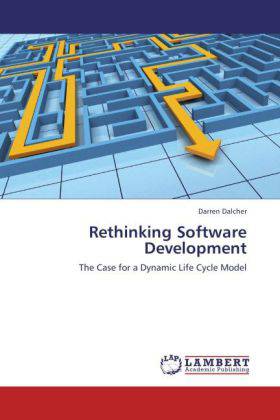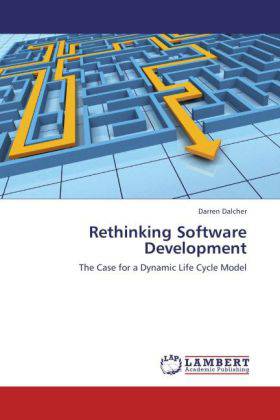
Bedankt voor het vertrouwen het afgelopen jaar! Om jou te bedanken bieden we GRATIS verzending (in België) aan op alles gedurende de hele maand januari.
- Afhalen na 1 uur in een winkel met voorraad
- In januari gratis thuislevering in België
- Ruim aanbod met 7 miljoen producten
Bedankt voor het vertrouwen het afgelopen jaar! Om jou te bedanken bieden we GRATIS verzending (in België) aan op alles gedurende de hele maand januari.
- Afhalen na 1 uur in een winkel met voorraad
- In januari gratis thuislevering in België
- Ruim aanbod met 7 miljoen producten
Zoeken
Rethinking Software Development
The Case for a Dynamic Life Cycle Model
Darren Dalcher
Paperback | Engels
€ 99,45
+ 198 punten
Omschrijving
Contemporary software development is characterised by failures, runaway projects, late delivery, exceeded budgets, reduced functionality and questionable quality. Generally, as the complexity and scale of attempted projects increases, the ability to bring such projects to a successful completion decreases. Indeed, while the software engineering community is technically capable of producing software, there is a growing lack of confidence in its ability to control such undertakings. A key obstacle is that traditional software development is predicated on constraints and limitations that are either no longer valid or that pertain to well-structured situations. Many of the problems tackled by software developers are simply not of that type. Rethinking Software Development, a reprint of the original work which still maintains its relevance, challenges the dominant mindset and introduces an alternative; a more pluralistic perspective supportive of continuous delivery, learning and dynamic resolution processes. The discussion explores problem solving, decisions, wicked problems, systems, design, change, economics, complexity and knowledge as part of the search for lasting solutions.
Specificaties
Betrokkenen
- Auteur(s):
- Uitgeverij:
Inhoud
- Aantal bladzijden:
- 344
- Taal:
- Engels
Eigenschappen
- Productcode (EAN):
- 9783843390095
- Verschijningsdatum:
- 16/01/2012
- Uitvoering:
- Paperback
- Afmetingen:
- 152 mm x 229 mm
- Gewicht:
- 503 g

Alleen bij Standaard Boekhandel
+ 198 punten op je klantenkaart van Standaard Boekhandel
Beoordelingen
We publiceren alleen reviews die voldoen aan de voorwaarden voor reviews. Bekijk onze voorwaarden voor reviews.









